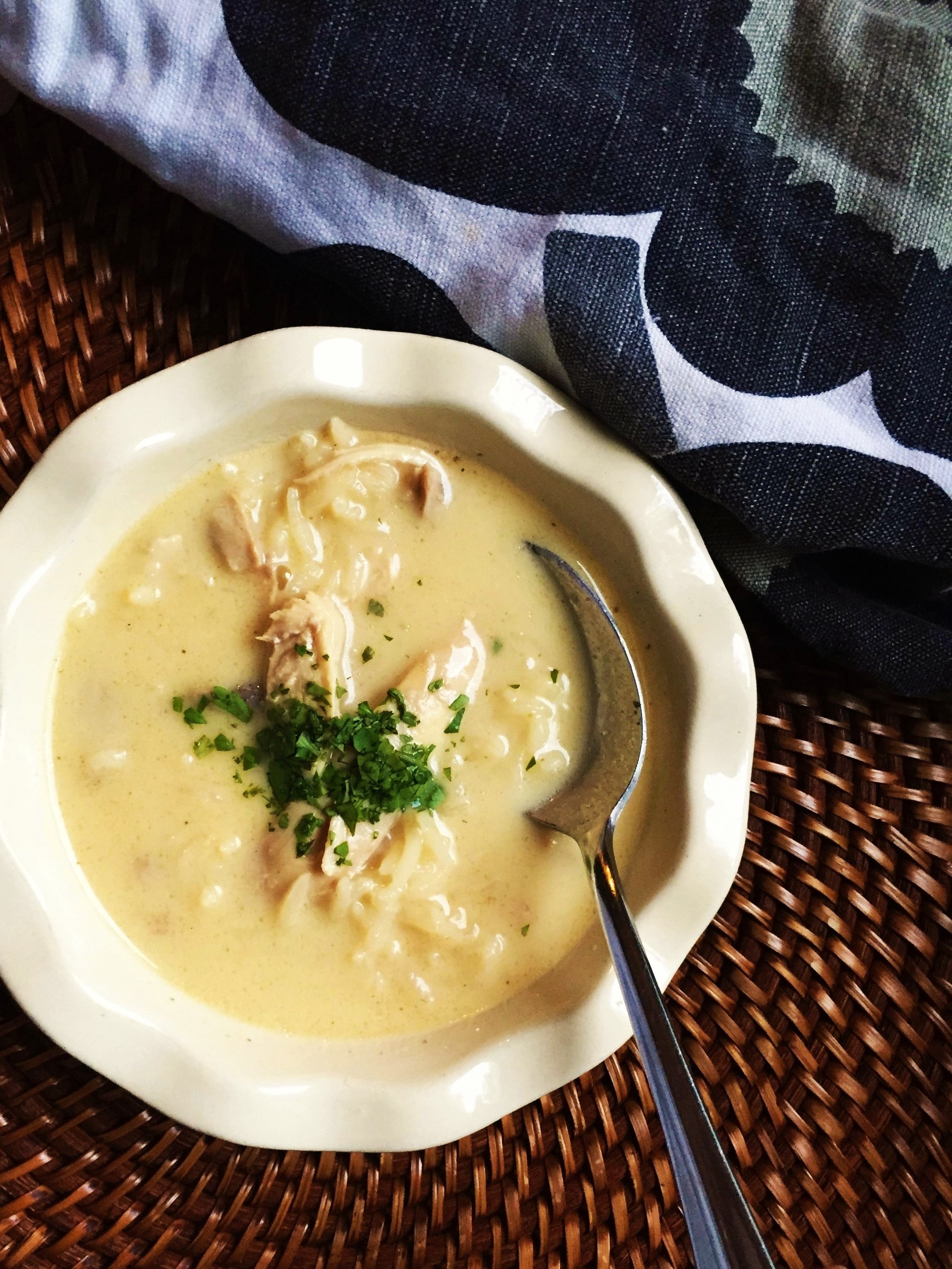
Week 4 - The Chicken and the Egg
Dishes from Armenia and Ethiopia bring chicken and eggs together in delicious tradition this week, for love and comfort.
Soldiers at the Ishtar Gate of Babylon.
On October 29, 539 BCE, the army of Persian king Cyrus the Great stormed through the magnificent blue and gold gates of Babylon and invaded the largest city the world had ever known.
The invading Persian Zoroastrians worshipped chickens as a holy, sacred symbol of goodness and light. Roosters crowed to keep misfortune away and banish the demon of laziness, Bushyasta, who would rather keep us slumbering. Within three short centuries of the fall of Babylon, chickens would be commonly found from the horn of Africa to Spain, throughout the Mediterranean, and as far north as Kazakhstan.
Armenian Chicken Soup
It's a small step from holy to healing, and thus for thousands of years, chickens have been considered great healers. Just about everywhere around the world, chicken soup is thought to provide healing and comfort to folks in need.
Havaboor made in the Adventure Kitchen
Our recipe for Lemon-Chicken Soup this week is from Armenia, which was part of Cyrus' Persian empire. The recipe, called Havaboor (translates literally to "chicken soup"), comes from my friend Cleopatra Matheos, whose Armenian family has been making it for generations.
It's a velvety-rich soup made with egg and lemon. I've provided an option to also include poached shredded chicken in the soup making it a bit more substantial, although Cleo says they never ate it that way in her family. She says this soup was always given to anyone who was sick, and she still makes it whenever someone doesn't feel well, or whenever she feels a bit homesick or misses her mother. Her Yaya (grandmother) would make the soup with small lamb-and-rice meatballs (a variation I definitely plan to explore in the future...).
As evidence of the complicated history that connects the Greeks, Turks and Armenians, this lemon-egg sauce approach to chicken soup is common among all of them. The Greek version is known as avgolemono.
Ethiopian Doro Wat
Doro Wat in the Adventure Kitchen
Chickens may have originally arrived in Ethiopia on trading ships from Arabia, laden with other valuable and exotic goods such as frankincense, myrrh and other spices, within a couple hundred years of Cyrus the Great.
Doro Wat is an iconic Ethiopian dish. Richly flavored and somewhat spicy, it is scooped into injera, a sour, spongy flatbread made with teff flour, and eaten with one's hands. In fact, a way to show your love for the people at your table is to use your hands to feed them! The most honored person at the table is given the best piece of chicken, and is fed by the others.
Doro Wat is always served with a hard boiled egg in addition to the chicken. In Ethiopia, it's said that a young woman is not ready for marriage until she can properly cut a chicken into 12 pieces and whip up a batch of Doro Wat. And good Doro Wat is said to keep husbands faithful.
Historical and archeological information in this post is based on Why Did the Chicken Cross the World? The Epic Saga of the Bird That Powers Civilization, by Andrew Lawler; as well as How the Chicken Conquered the World, By Jerry Adler and Andrew Lawler at Smithsonian.com.
Recipes
This Armenian lemon-chicken soup is good for heart, body and soul. Made with lemon, eggs, chicken, rice ...and lots of love.
Flavorful, iconic Ethiopian stew of chicken, eggs and spices. A delicious way to show your love for the people at your table.
(Adventure Kitchen is not responsible for marriage proposals.)



